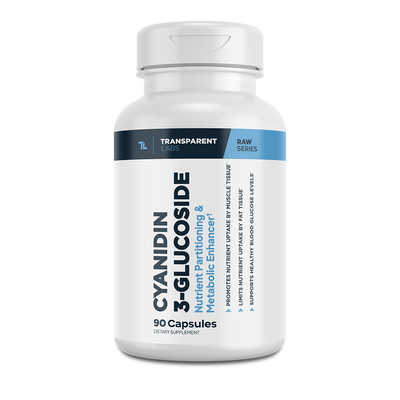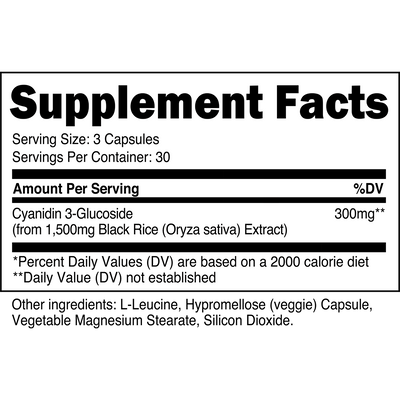Clinical Aromatherapy: Does Science Back the Use of Essential Oils?

Clinical Aromatherapy: Does Science Back the Use of Essential Oils?
Is it just us, or is there something in the air as of late? Puns aside, aromatherapy using essential oils is a buoyant health niche these days, with multi-level marketing companies like doTERRA cashing in on the hype.
If you’re not familiar with essential oils, they are highly concentrated oil extracts of various plants, notably species of lavender, peppermint, rosemary, eucalyptus, spearmint, tea tree, and frankincense (Boswellia). Aromatherapy supporters purport that essential oils are much more potent (and practical) than consuming dietary supplement herbal extracts.
There are alternative medicine clinics that focus specifically on "clinical aromatherapy" for treating just about every medical condition you can think of — feeling anxious? Do you lack energy? Got cancer? Just sniff some peppermint essential oil and all will be well!
Those seemingly facetious examples are how many complementary medicine advocates portray the use of essential oils and clinical aromatherapy. There's basically nothing these plant oils can't do. But what does research have to say about them?
Research on Essential Oils and Clinical Aromatherapy
If you're the skeptical type, odds are you doubt the veracity of claims that essential oils can cure cancer, prevent numerous diseases, improve mood, support healthy blood pressure, and enhance sleep. And yes, some essential oil companies actually claim that aromatherapy can treat cancer.
That claim is a stretch (to say the least), and some consumers can see right through it. But there are plenty of people who take it as fact.
What studies have shown is that essential oils/clinical aromatherapy may help attenuate the symptoms of chemotherapy and radiation therapy, such as nausea, loss of appetite, and skin irritation [1]. However, there is no empirical evidence suggesting that aromatherapy reduces cancer risk or cures cancer [2].
Lavender essential oil is arguably one of the most popular varieties, with claims that it helps alleviate anxiety, reduce the risk of fungal infection, treat insomnia, and enhance mood.

On the flip side, there are plenty of seemingly plausible claims that essential oil sellers put out there, and they word them just vaguely enough to avoid intervention from the Food and Drug Administration (FDA). You see, the FDA cracks down on alternative medicine practices like clinical aromatherapy quite a bit because there’s a considerable disproportion between the scientific evidence and marketing claims. The FDA considers essential oils to be cosmetics, not drugs for treating or preventing any disease.
When a company comes out and says that their tea tree oil will transform your skin and treat chronic health conditions, it raises red flags to the FDA; there needs to be a large body of scientific/clinical evidence demonstrating such benefits.
Do Essential Oils Work?
While looking for data on essential oils, it didn’t surprise us how scarce the research is. Despite big-wigs at companies like doTERRA and Young Living saying essential oils have 1000s of published research papers backing their efficacy, we have been unable to track down such a bounty of evidence.
As of August 2021, there are approximately 1,191 human studies of aromatherapy, and over half of those studies have been between 2015-2021. It seems a bit too coincidental that the research on essential oils is burgeoning correspondingly to the proliferation of MLM companies and "health quacks" that peddle these cure-all solutions. Much of the available data is riddled with methodological flaws, conflicts of interest, and apparent biases.
Furthermore, the majority of studies on essential oils are confounded by combination interventions, like massage therapy, music therapy, and counseling. It's impossible to tell if the aromatherapy is doing much of the "leg work" when a handful of other factors potentially contribute to the results.
One lavender aromatherapy study notes that both scientific and clinical data support the traditional uses of lavender essential oil, but the results of many studies are inconclusive and controversial [3]. Methodological and oil identification issues have severely impeded the therapeutic evaluation of Lavandula spp in research.
That’s a scientist’s way of saying, “It’s possible essential oils work; we just don't know to what degree.” This seems to be the conclusion of many of the studies that use essential oils.
Still, that won't stop people from spending hundreds of dollars on essential oil and aromatherapy clinics. Is there something we’re missing on the scientific side, or is this all just an unfettered “placebo effect” running its course?
Benefits of Essential Oil Aromatherapy

Okay, so now you probably think that essential oils are entirely bunk — but that's not true, either. Arguably the most practical use of essential oils is in preoperative and postoperative settings. Numerous studies have shown that peppermint essential oil and ginger essential oil can significantly reduce vomiting and nausea before and after surgery [4].
There are also a handful of studies suggesting that aromatherapy helps reduce anxiety symptoms, support healthy sleep-wake cycles, and improve quality of life, particularly in cancer patients [5, 6, 7]. It's reasonable to assert that essential oils can calm the nervous system, but identifying the specific aromatic compounds responsible for that effect is tricky.
One thing to keep in mind before you jump on the essential oil bandwagon is the risk of side effects, mainly when applied to the skin. There are quite a few reports of contact allergic reactions when using tea tree oil, peppermint oil, lavender oil, and others [8, 9]. The particles dispersed through the air in aromatherapy can also cause an allergic reaction if they contact a person's skin.
Should You Use Essential Oils for Overall Health and Wellness?
Let’s be clear: this article is not saying that essential oils are bogus or useless. Instead, it seems that this particular niche of alternative medicine is still in its infancy in terms of quality clinical research. For the “self-experimenters” out there, the use of essential oils is probably intriguing regardless of what the data shows.
Unfortunately, there is now a massive gap in the amount of publicity and revenue essential oils generate compared to their justifiable benefits. While having a diffuser in your bedroom and inhaling that flowery breeze of lavender might make you feel calmer and sleep better, it’s still up for debate whether or not that is simply a placebo effect or an actual reaction to aromatic chemicals floating through your sinuses.
But who knows, maybe essential oil will help transform your health and wellness. Even if that is just a great-smelling placebo effect, it’s better than nothing.








